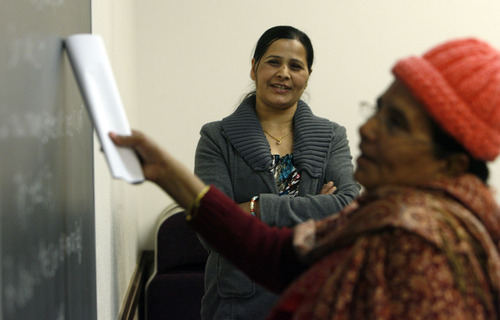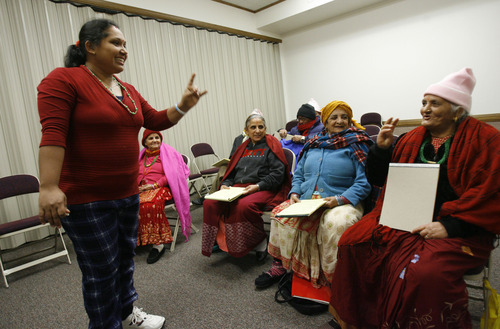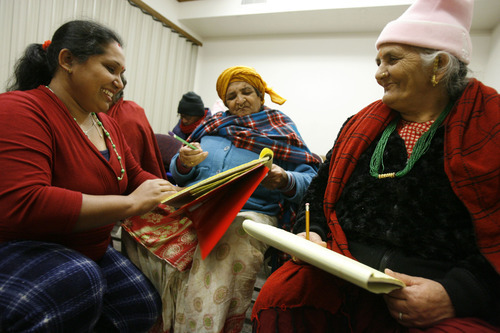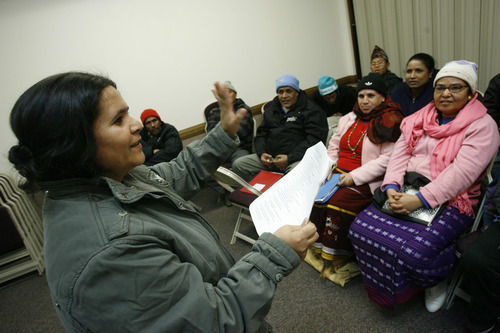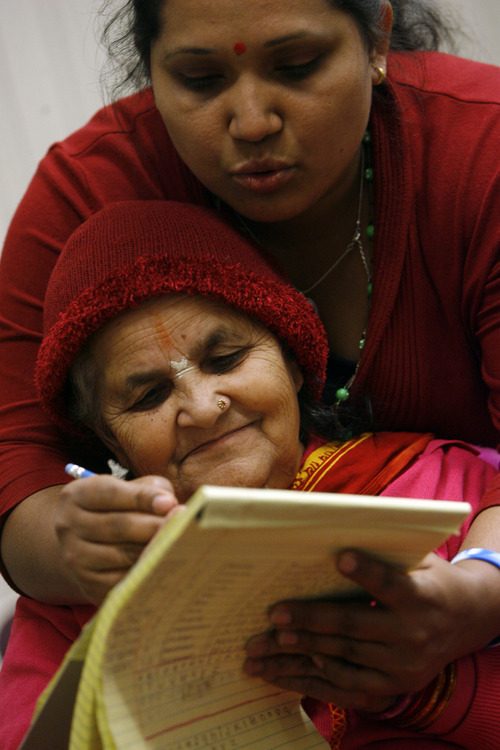This is an archived article that was published on sltrib.com in 2011, and information in the article may be outdated. It is provided only for personal research purposes and may not be reprinted.
When Bhutanese refugees arrived in Utah consistently complaining of numbness and tingling in their legs, doctors knew something was wrong. The elderly, people in their 20s and even the occasional teenager had the same symptoms.
Most of them receive an initial health screening at the Salt Lake Family Health Center, where doctors realized a vitamin B12 deficiency, likely connected to diet, had left its mark on these newcomers.
"The majority of them will eat more meat and it won't be a long-term issue," said Paul Swoboda, a doctor at the clinic. "People with more long-standing problems — a lot of the damage is permanent."
Rarely seen in the U.S. except among older adults, B12 deficiency also has been tied to memory loss, anxiety, depression, anemia and problems with children's development.
This is not just a Utah problem. More than 30,000 Bhutanese refugees, who are legal immigrants, have resettled in the U.S. since 2008. An estimated 30 to 60 percent of that group is deficient in B12, probably due to poor nutrition in Nepal, where they generally did not eat meat, dairy or eggs. Some report having a diet that was 95 percent white rice.
Refugees are not the only group at risk. According to the Centers for Disease Control and Prevention, 1 out of 31 adults over 50 is deficient in B12. The aging body is not able to absorb B12 as efficiently. Overall, less than 1 percent of the U.S. population is deficient.
In Utah, all newly arrived refugees are offered vitamins with a high dose of B12. Depending on the case, some receive an immediate injection. Because some symptoms are mild and not identified, and because some people don't complain about symptoms, doctors decided to supplement everyone.
When the onset of symptoms is more recent, a person may improve in a period of weeks. A new diet also will make an impact, making long-term B12 supplements unnecessary for most.
But not everybody wants to take the vitamins.
"Some of them they do not understand — some of them, they feel it is not necessary," said Ghana Dulal, a refugee resettlement caseworker who arrived in Utah as a refugee three years ago. "Some people need some more knowledge and education on deficiency on those vitamins and the importance of taking them."
Bhim Sapkota, who serves as treasurer of a Bhutanese community organization, lived in a refugee camp in Nepal for 18 years before arriving in Utah in 2009. It was very hard to eat nutritious food there, she recalled. Families bought meat once or twice a month. Rations never included milk or eggs. They received enough vegetables for two days each week.
Now that refugees have been told of the importance of B12, transportation and understanding where to obtain the vitamins remain problems, she said.
"We inform them go to the agencies but even then many people, they were not taking the medication," said Sapkota.
Community leaders plan to continue education about the vitamins next year as they push an improved diet.
"Most of the people, they are taking the same foods they ate in Bhutan or in Nepal," she said.
The deficiency is believed to be more commonly seen in the Bhutanese due to their heavily vegetarian diet. The CDC is currently working on a study in the camps to determine why the deficiency exists despite a supplement provided by the World Food Programme.
Are you deficient in B12?
The vitamin is commonly found in meat, shellfish, dairy and eggs.
It is necessary for a healthy nervous system.
Symptoms of a B12 deficiency include neuropathy, a tingling or numbness in limbs; memory loss; or anxiety.
> cdc.gov/ncbddd/b12


